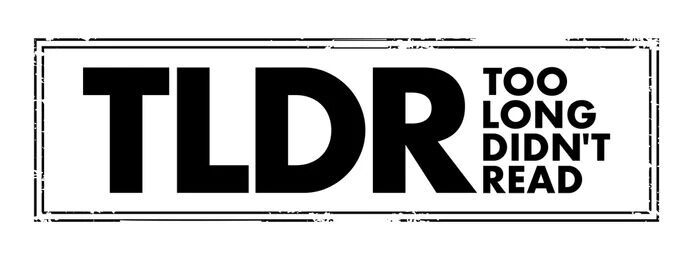
Intro
In today’s fast-paced business environment, supply chain management jobs play a crucial role. They keep global markets moving efficiently.
With an increasing demand for skilled professionals, understanding the dynamics of supply chain jobs is essential for those looking to forge a successful career in this field.

Understanding Supply Chain Management Jobs
Supply chain management jobs center on managing the flow of goods from production to consumer. These professionals ensure the efficient transit of products through various stages.
They tackle logistics, oversee inventory, and strive for supply chain improvements. The job mixes strategic planning, problem-solving, and strong communication.
These roles demand a proactive approach to handle the complexities of global supply chains.
In essence, they serve as the backbone of product distribution, ensuring that items reach their destination on time and in good condition.
Workers in this field collaborate with suppliers and customers to optimize processes. They also analyze data to forecast demand and adjust strategies accordingly.
Success in supply chain management jobs hinges on a keen ability to navigate these challenges with agility and insight.

Essential Qualifications for Success
To excel in supply chain management jobs, you’ll need a robust educational background.
A bachelor’s degree in supply chain management, business, or a related area typically marks the starting point.
Beyond formal education, hands-on experience in logistics, procurement, or business analytics significantly boosts your marketability. Earning professional certifications, like the Certified Supply Chain Professional (CSCP) designation, can set you apart from the competition.
In this field, soft skills matter just as much as technical knowledge. Adaptability helps you navigate the fast-paced changes in global supply chains. Strong teamwork skills ensure you can work effectively with diverse groups across the supply chain.
Critical thinking enables you to solve complex problems efficiently.
To sum it up, success in supply chain management jobs requires a combination of academic qualifications, practical experience, and a solid set of soft skills. These elements prepare you to meet the demands of the role and drive success in this dynamic career path.

The Financial Rewards of Supply Chain Management Jobs
Supply chain management jobs offer impressive financial benefits. Entry-level salaries often start at around $50,000. With experience, professionals can see their earnings surpass $100,000 annually.
These figures reflect the critical nature of supply chain roles. Location, industry, and experience level significantly influence pay scales.
As you climb the career ladder, your salary potential grows.
Seasoned experts in the field can command high salaries, especially in strategic or managerial positions.
The financial rewards in supply chain management showcase the value these jobs add to businesses worldwide.
They highlight how crucial supply chain experts are to maintaining efficient, profitable operations. Remember, as your skills and experience expand, so does your earning potential in this dynamic field.

Navigating the Future of Supply Chain Management Jobs
The future of supply chain management jobs shines bright. Global commerce continues to grow, demanding more skilled professionals. They must manage supply chains with efficiency and innovation.
Sustainability and ethical sourcing also shape the future, presenting both challenges and opportunities. Professionals will need to adapt to these evolving demands.
In response, those in supply chain management jobs should focus on enhancing their skill set. Staying abreast of industry trends is crucial. They must also embrace the push towards sustainability, finding innovative ways to reduce environmental impact.
This focus not only addresses ethical concerns but also uncovers new paths for efficiency and cost savings.
To remain relevant, professionals should dive into emerging technologies.
Knowledge in artificial intelligence, blockchain, and IoT will be invaluable. These technologies are set to redefine supply chain processes, making them more efficient and transparent.
These technologies streamline operations, enhance transparency, and improve efficiency across supply chains. Professionals in the field must keep pace with these technological advancements to remain competitive.
AI applications, for instance, enable predictive analytics for better demand forecasting. This accuracy in prediction minimizes waste and optimizes inventory levels.
Blockchain technology, on the other hand, offers unmatched traceability and security. It ensures the authenticity of products and strengthens trust across the supply chain.
The IoT connects devices and systems, facilitating real-time tracking of goods. This connectivity reduces delays and enhances product integrity.
For supply chain management jobs, understanding these technologies is no longer optional. It’s a necessity.
Mastery of AI, blockchain, and IoT can significantly boost one’s ability to innovate and solve complex supply chain challenges.
These skills empower professionals to design more resilient and responsive supply chains.
Adapting to these technological changes requires a commitment to continuous learning. Professionals should seek out training and development opportunities in these areas.
Embracing technology not only future-proofs careers but also elevates the strategic value of supply chain management within organizations. Technology is not just changing supply chain management jobs; it’s elevating them to new heights of strategic importance and efficiency.
Additionally, the ability to navigate complex global networks will become increasingly important. Professionals should hone their problem-solving and analytical skills. They must also maintain strong communication lines within diverse teams.

How to Excel in Supply Chain Management Jobs
Excelling in supply chain management jobs demands a proactive approach. Dive deep into industry trends and emerging technologies to stay competitive. Prioritize networking; it opens doors to new opportunities and insights. Engage in professional development workshops and courses. They sharpen your skills and keep you ahead in the field.
Embrace continuous learning as a key strategy. It ensures your knowledge remains current and relevant. Focus on building strong communication skills. They are vital for collaborating effectively across diverse teams. Develop critical thinking to solve problems quickly and creatively.
Highlight your adaptability. The ability to adjust to changes sets you apart in the dynamic supply chain landscape. Leverage technology to optimize supply chain processes. Familiarity with AI, IoT, and blockchain enhances your value to employers.
Seek feedback regularly. It helps you identify areas for improvement and growth. Show initiative by proposing innovative solutions to supply chain challenges. Always aim for efficiency and sustainability in your strategies.
Remember, success in supply chain management jobs is not just about what you know. It’s also about how you apply your knowledge and skills. Keep pushing your limits, and stay dedicated to excellence in every task you undertake.

The Importance of Sustainability in Supply Chain Management Jobs
In supply chain management jobs, embracing sustainability is no longer optional; it’s imperative.
These professionals work at the forefront of reducing environmental impacts. They innovate processes to ensure ethical practices across the entire supply chain.
Sustainability efforts lead to significant cost savings and efficiency improvements.
This focus also meets increasing consumer demands for eco-friendly products and transparent practices.
Supply chain experts develop strategies that minimize waste and optimize resource use. They evaluate suppliers based on sustainable practices, ensuring responsible sourcing.
Professionals also collaborate with teams to integrate green technologies and processes. This collaboration enhances the environmental credentials of their operations.
Driving sustainability in supply chains opens new paths for innovation. It challenges professionals to think creatively about problem-solving. These roles now involve balancing economic goals with environmental responsibility.
As such, sustainability knowledge becomes a valuable asset in supply chain management jobs. Professionals must stay informed about sustainable practices and regulations.
Their work has a direct impact on the planet and society. By making supply chains more sustainable, they contribute to a healthier environment. This commitment positions supply chain professionals as key players in the global move toward sustainability.
It shows that these jobs are not just about logistics and efficiency. They’re also about making a positive difference in the world.

Preparing for a Career in Supply Chain Management
To kickstart a career in supply chain management, focus on gaining a solid grounding in business and the fundamentals of supply chains. Seek out internships or part-time roles in logistics or operations for hands-on experience.
Sharpen your analytical and tech skills, as these are crucial in navigating the complexities of supply chains.
Certifications can also give you an edge, making you stand out to potential employers.
Immerse yourself in the industry by attending workshops and conferences related to supply chain management.
Networking plays a key role, so connect with professionals in the field through social media and professional groups.
Always be on the lookout for opportunities to apply your knowledge in real-world situations.
This proactive approach will pave the way for a successful career in supply chain management.

TLDR
Supply chain management jobs are key to keeping global markets efficient and responsive. They demand a mix of education, experience, and soft skills for success. In these roles, expect to engage in strategic planning, problem-solving, and teamwork.
The field offers solid financial rewards, with salaries growing alongside your experience. The future looks bright, with sustainability and technology shaping the landscape. Stay ahead by embracing continuous learning, especially in AI, blockchain, and IoT.
Networking and professional development are also vital.
Aim to contribute to sustainability efforts, aligning with consumer demands and ethical practices.
Start your career by building a strong foundation in business and supply chain fundamentals. Hands-on experience and certifications will make you stand out.
For a fulfilling career path, focus on innovation, efficiency, and making a positive impact.

You may be interested in our other Finance related Posts
